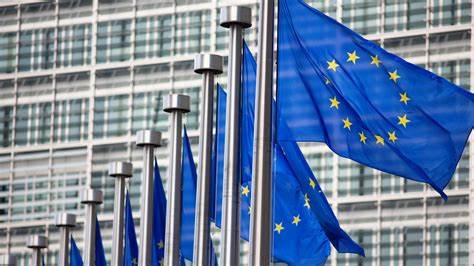From Euronews’ Brussels bureau Europe is on the cusp of a new passport era. The EU institutions and 27 national governments are preparing to roll out a transcontinental system that will allow citizens to once again travel freely across borders – or as freely as one can possibly travel under the coronavirus shadow. The European Commission is ready to enter negotiations with the European Parliament and the Council to have the so-called ‘digital green certificate’ ready by the summer. Brussels wants to introduce an easy-to-use instrument that will incorporate proof of vaccination, negative PCR tests and medical statements of COVID-19 recovery, whichever applies to the person. “The certificate is prepared to [enter] into force in the summer, maybe June or beginning of July,” Didier Reynders, European Commissioner for Justice, told Euronews. The proposal is being fast-tracked in the EU Parliament and enjoys wide backing from European capitals, making it easier to advance through the different stages of the intricate EU policy cycle. “For the next weeks, we’ll continue to go further with the vaccination and it will give the possibility for the others to continue to travel with a PCR test and a quarantine, if needed,” Reynders said. “It’s the reason why we insist [that] member states will be ready to have a low price for the test, because if you need to organise a test, it must be possible to do that in a very fast way.” Although there were some initial reservations surrounding the EU-wide system, the likes of which the bloc has never tried before, the accelerating pace of vaccinations is boosting confidence and support. The Commissioner clarified that one dose will be enough to obtain the certificate. “In the first quarter, it was possible to provide member states with 100 million [vaccine] doses. In the second quarter, it will be more than 300 million doses and it’s only increasing,” he added. But some countries don’t want to wait for the summer. This week, France kicked-off the race by updating its contact-tracing app, called TousAntiCovid, to include negative tests and vaccination certificates. The design mimics the EU’s plans and, for the time being, will only be tested on flights to Corsica and other overseas territories. In Spain, a country desperate for a tourism rebound, the government has already said that holders of the EU green certificate will be allowed to skip quarantine altogether. Greece will soon begin testing a pilot scheme for vaccinated visitors. Denmark is taking the idea in a different direction. The Nordic country is promoting a ‘coronapass’ to allow entry in non-essential businesses such as hairdressers and beauty salons. The Danish government wants to gradually extend the tool to encompass terraces, museums, theatres, restaurants and cinemas, effectively turning the pass into the key to kickstart the economy. Brussels is keen to act fast and let all EU citizens move across borders after June. But it’s also eager to dispel the idea that the passes will be linked exclusively to vaccination. The World Health Organization has repeatedly warned against making movement dependent on vaccination. This is the reason why you’ll never hear the term ‘vaccine passport’ from the lips of an EU official. Instead, call it a ‘green certificate’. “It’s not a good idea to make a real link between the vaccine and travellers. It must be one of the possibilities,” Reynders insisted. Optimism is visibly rising in Brussels and across the continent. The green certificate is seen as proof that the worst of the pandemic is over and a new normal can finally begin. A new normal with caution, travel and plenty of QR codes. |









